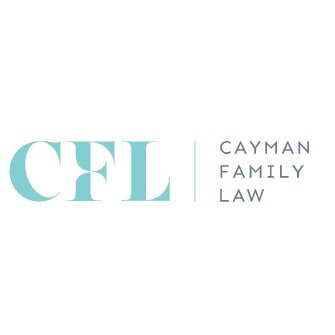Best Domestic Violence Lawyers in Cayman Islands
Share your needs with us, get contacted by law firms.
Free. Takes 2 min.
Free Guide to Hiring a Family Lawyer
Or refine your search by selecting a city:
List of the best lawyers in Cayman Islands
About Domestic Violence Law in Cayman Islands:
Domestic violence is a serious issue in the Cayman Islands, with laws in place to protect victims and hold perpetrators accountable. Domestic violence can take many forms, including physical, emotional, sexual, and financial abuse. If you are experiencing domestic violence or know someone who is, it is important to seek legal advice and support.
Why You May Need a Lawyer:
You may need a lawyer in cases of domestic violence to help you understand your legal rights, file for a protection order, navigate the court system, and ensure your safety. A lawyer can also provide you with guidance on how to document incidents of abuse, gather evidence, and build a strong case against the abuser.
Local Laws Overview:
In the Cayman Islands, the Domestic Violence Law (2017 Revision) provides legal protection for victims of domestic violence. The Law defines domestic violence, outlines the duties of the police and social services in responding to cases of domestic violence, and allows for the issuance of protection orders against abusers.
Frequently Asked Questions:
1. What is considered domestic violence in the Cayman Islands?
Domestic violence includes any form of abuse or violence that occurs within a domestic relationship, such as between spouses, partners, or family members.
2. How can I get a protection order against my abuser?
You can apply for a protection order through the Family Services Department or the courts. A lawyer can help you through the process.
3. What should I do if I am experiencing domestic violence?
Contact the police or seek help from a domestic violence support organization. It is important to prioritize your safety and well-being.
4. Can I press charges against my abuser?
Yes, you can press criminal charges against your abuser for acts of domestic violence. A lawyer can assist you in pursuing legal action.
5. How can I document incidents of abuse?
Keep a journal of the abuse, take photos of any injuries, and save any threatening messages or emails from your abuser.
6. Can I get a restraining order against my abuser?
Yes, you can request a restraining order to keep your abuser away from you and protect yourself from further harm.
7. What support services are available for victims of domestic violence?
There are several organizations in the Cayman Islands that provide support, counseling, and resources for victims of domestic violence, such as the Family Resource Centre and the Cayman Islands Crisis Centre.
8. Will my information be kept confidential if I seek legal help?
Lawyers are bound by confidentiality rules, so your information will be kept private unless required by law to disclose it.
9. How long does it take to resolve a domestic violence case in court?
The timeline for resolving a domestic violence case can vary depending on the complexity of the case and the court's schedule. It is important to seek legal advice to understand the process and timeline.
10. How can I access legal aid for domestic violence cases?
You can contact the Legal Aid Office in the Cayman Islands to inquire about legal assistance for domestic violence cases if you cannot afford a private lawyer.
Additional Resources:
For more information and support on domestic violence in the Cayman Islands, you can contact the following organizations:
- Family Resource Centre: [Contact information]
- Cayman Islands Crisis Centre: [Contact information]
Next Steps:
If you are in need of legal assistance for a domestic violence case in the Cayman Islands, it is important to seek help as soon as possible. Contact a lawyer who specializes in domestic violence cases to discuss your options and rights under the law.
Lawzana helps you find the best lawyers and law firms in Cayman Islands through a curated and pre-screened list of qualified legal professionals. Our platform offers rankings and detailed profiles of attorneys and law firms, allowing you to compare based on practice areas, including Domestic Violence, experience, and client feedback.
Each profile includes a description of the firm's areas of practice, client reviews, team members and partners, year of establishment, spoken languages, office locations, contact information, social media presence, and any published articles or resources. Most firms on our platform speak English and are experienced in both local and international legal matters.
Get a quote from top-rated law firms in Cayman Islands — quickly, securely, and without unnecessary hassle.
Disclaimer:
The information provided on this page is for general informational purposes only and does not constitute legal advice. While we strive to ensure the accuracy and relevance of the content, legal information may change over time, and interpretations of the law can vary. You should always consult with a qualified legal professional for advice specific to your situation.
We disclaim all liability for actions taken or not taken based on the content of this page. If you believe any information is incorrect or outdated, please contact us, and we will review and update it where appropriate.
Browse domestic violence law firms by city in Cayman Islands
Refine your search by selecting a city.
















